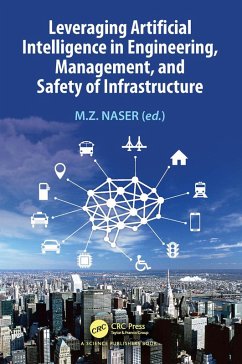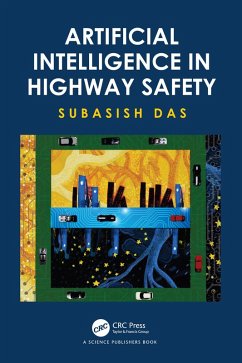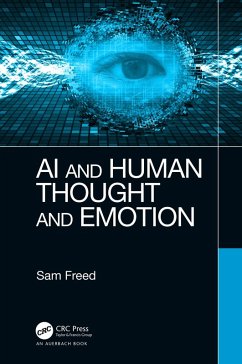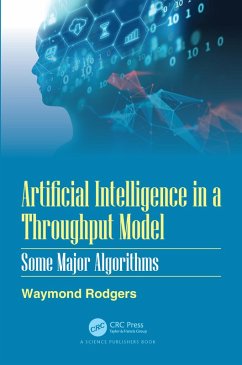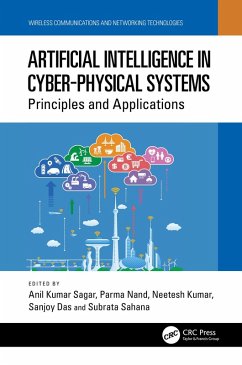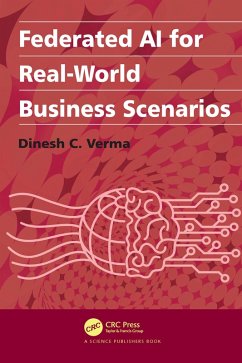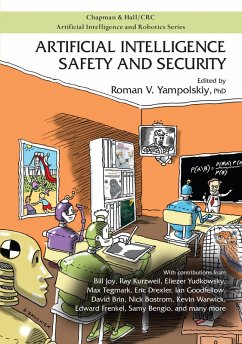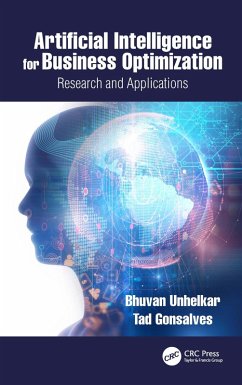
Leveraging Artificial Intelligence in Engineering, Management, and Safety of Infrastructure (eBook, PDF)
Versandkostenfrei!
Sofort per Download lieferbar
72,95 €
inkl. MwSt.
Weitere Ausgaben:

PAYBACK Punkte
36 °P sammeln!
The design, construction, and upkeep of infrastructure is comprised of a multitude of dimensions spanning a highly complex paradigm of interconnected opportunities and challenges. While traditional methods fall short of adequately accounting for such complexity, artificial intelligence (AI) presents novel and out-of-the-box solutions that effectively tackle the growing demands of our infrastructure. The convergence between AI and civil engineering is an emerging frontier with tremendous potential.The book is likely to provide a boost to the state of infrastructure engineering by fostering a ne...
The design, construction, and upkeep of infrastructure is comprised of a multitude of dimensions spanning a highly complex paradigm of interconnected opportunities and challenges. While traditional methods fall short of adequately accounting for such complexity, artificial intelligence (AI) presents novel and out-of-the-box solutions that effectively tackle the growing demands of our infrastructure. The convergence between AI and civil engineering is an emerging frontier with tremendous potential.
The book is likely to provide a boost to the state of infrastructure engineering by fostering a new look at civil engineering that capitalizes on AI as its main driver. It highlights the ongoing push to adopt and leverage AI to realize contemporary, intelligent, safe, and resilient infrastructure. The book comprises interdisciplinary and novel works from across the globe. It presents findings from innovative efforts supplemented with physical tests, numerical simulations, and case studies - all of which can be used as benchmarks to carry out future experiments and/or facilitate the development of future AI models in structural engineering, traffic engineering, construction engineering, and construction materials.
The book will serve as a guide for a wide range of audiences, including senior undergraduate and graduate students, professionals, and government officials of civil, traffic, and computer engineering backgrounds, as well as for those engaged in urban planning and human sciences.
The book is likely to provide a boost to the state of infrastructure engineering by fostering a new look at civil engineering that capitalizes on AI as its main driver. It highlights the ongoing push to adopt and leverage AI to realize contemporary, intelligent, safe, and resilient infrastructure. The book comprises interdisciplinary and novel works from across the globe. It presents findings from innovative efforts supplemented with physical tests, numerical simulations, and case studies - all of which can be used as benchmarks to carry out future experiments and/or facilitate the development of future AI models in structural engineering, traffic engineering, construction engineering, and construction materials.
The book will serve as a guide for a wide range of audiences, including senior undergraduate and graduate students, professionals, and government officials of civil, traffic, and computer engineering backgrounds, as well as for those engaged in urban planning and human sciences.
Dieser Download kann aus rechtlichen Gründen nur mit Rechnungsadresse in A, B, BG, CY, CZ, D, DK, EW, E, FIN, F, GR, HR, H, IRL, I, LT, L, LR, M, NL, PL, P, R, S, SLO, SK ausgeliefert werden.




